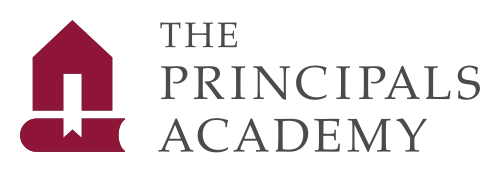After a holiday break it’s time to get myself into writing mode which, I can assure you, is far from easy. The big question is to find a topic worthy of a letter to principals which suits my motivational purpose.
My letter-writing emerged from the forced lockdown of March 2020 in a simple attempt to keep in touch with isolated principals in those unprecedented times. Then my notes morphed into an experienced former principal’s weekly and then, after 60 letters, fortnightly mentor’s musings.
My purpose is to support principals either with solid advice on an issue or with useful content for introductory use at a briefing, team meeting or parents evening. The 30 principals I have coached receive a Sunday evening topical message for weekly inspiration. It is often adapted and contextualised and distributed to teachers, later that evening, who definitely need all the positive support they can get. So, let me share a few things I’ve read and pondered recently.
‘Cost Containment’ is a nightmare for schools and districts. National Treasury is forced to shrink budgets by billions and particular portfolios by hundreds of millions. Decisions on freezing vacancies and ending temporary contracts are taken by number-crunchers who simply delete whole columns and leave bureaucrats to implement the cuts. That a class will have no teacher or no school that day doesn’t hit the headlines till months later.
My advice to principals is to, firstly, have a group of colleague principals at hand to share actual daily developments, to discuss tactics in designing motivations, to identify the right contacts within districts, to consider copying to district directors and, all failing, to get governing body to approach the MEC directly. You can’t take a cut of six or eight substantive posts lying down. You have to ‘hustle’ like a community leader fighting for running water. Just use all the right channels in writing and within the law. I’m sure sanity will prevail.
Secondly, do your best to shield your staff from all the negativity. Communicate daily and gain the confidence of your teachers. They must see you fighting for them and for their school as if your own children were losing their class teachers. You can’t allow the loss of that indispensable Mathematics or Foundation Phase specialist. Make a plan. Yes, you are the principal. Make a plan.
In times of negativity divorce your school from the chaos and noise of an issue and adopt an island mentality – an island of excellence focused on getting on with the daily business of education.
I respected Prof Jonathan Jansen’s direct and insightful analysis in his latest Life Lessons weekly column entitled ‘Instructional time unnecessarily lost in schools’. He used phrases like ‘inbuilt tardiness’, exploiting ‘the slightest calamity or opportunity to waste more time’, ‘routinised absence from school and classroom’. “This is not about one school,” he says, “I have found this in most of the schools I work with.”
He makes the point that 80% of public resources for education goes into teacher salaries. That’s the single most important instrument available to improve results: how teachers use their time in the classroom.
Objectively examine your own school for ‘inbuilt tardiness’ and ‘routinised absence from school and classroom’. There are numerous national studies on this very real phenomenon. Is your school different? Apply your systems thinking tools.
I’ve been glued to DSTv’s age-restricted Chasing the Sun 2 which allows us to re-live all the tension of last October’s Rugby World Cup triumph with behind-the-scenes footage in the changing-room, inside the homes of players’ parents and in clubs and pubs throughout diverse South Africa.
At a press conference last week, Jacques Nienaber, who now coaches Leinster, explains what it takes:
“You have to have INTENT, you’ve got to have ENERGY and you need to be PHYSICAL, and you need to be ALIGNED and ACCURATE in your PLAN.”
Surely that applies in both the staffroom and the classroom. It just boggles the mind to see the level of data and detail invested in coaching a rugby team. We have the human resources to invest the same alignment and accuracy in planning our teaching. Perhaps, in an education setting, we should change PHYSICAL to STAMINA, which has become such a key ingredient in our post-Covid teaching and learning reality. We can dwell on each of the emphasised words with a little contextual input or explanation. Try it with your team or with a subject or grade committee.
That’s my musing for now. Till next time.
Paul
Coach/Mentor
The Principals Academy Trust
No: 06/24
16 April 2024

